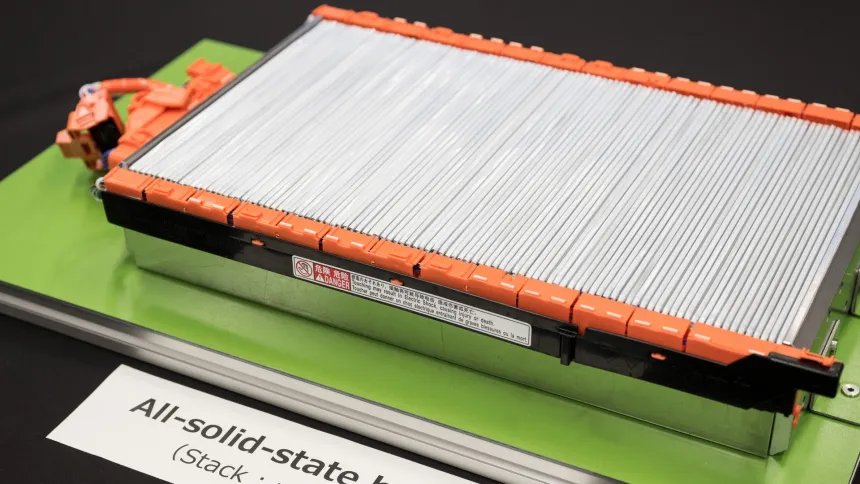Toyota solid-state EV due in 2027 with 745 miles of range

Toyota is accelerating its development of solid-state batteries following a “technological breakthrough” in their durability and is fast progressing with plans to ultimately produce EVs with more than 930 miles of range.
Solid-state batteries – so called because they use a solid electrolyte rather than a liquid one, as in today’s lithium ion units – have a much greater energy density than current-generation batteries.
Their introduction means manufacturers could drastically increase the range of electrified vehicles without also incurring a size or weight penalty.
Equally, they could provide a range comparable with today’s EVs while significantly reducing weight, potentially making electric lightweight sports cars possible.
Toyota hinted at the sorts of EVs this technology could facilitate in 2021, when then-president Akio Toyoda shocked with the reveal of 15 electric concept cars, including a low-slung, GR-branded two-seater in the mould of the old Toyota MR2.
Toyota has also said that the electric successor to the Lexus LFA – shown in concept form at last year’s Goodwood Festival of Speed – is likely to use a solid-state battery.
It will also feature a bespoke manual gearbox to make it more engaging to drive, which will be a first for a mass-production EV.
Toyota said in a recent strategy update that it was developing a mass-production method for its current solid-state cells, eyeing a launch between 2027 and 2028.
The introduction of these cells would give a 20% improvement in driving range compared with Toyota’s next-generation lithium-ion batteries, to around 745 miles.
This solid-state pack will also be capable of charging from 10-80% in less than 10 minutes, although it's unclear at this time how much power that translates to.
Following the introduction of these cells and “with an eye to the future”, Toyota will develop a “higher-level specification”. This will improve range by 50% compared with new lithium-ion cells, allowing a staggering 932 miles between recharges.
Toyota isn't alone in believing that it can commercialise solid-state batteries at last, following years of delays across the industry.
Nissan’s senior vice-president for research and development in Europe, David Moss, told Autocar in February that Nissan aims to bring the technology to market in 2028.
“We think we have something quite special and are in a group leading the technology,” said Moss. “We want to get the cost down [compared with lithium ion batteries] by 50%, to double the energy density and to offer three times the charging speed.”
In January, BMW announced a deal allowing it to build partner Solid Power’s solid-state cells in Munich, Germany. It aims to demonstrate these in a car within the next year and a half.
West Midlands Gigafactory strategy boss Richard Moore summarised the technology’s historic position neatly when speaking to Autocar in October 2022. He said: “The answer I always give on solid-state is that every time I look at it, it's 10 years away.
“To be fair, the last time I looked, it was an improving position. You can demonstrate it as a viable technology; the concept is proven in the automotive industry. It's a proven concept, but not to scale. So you can make one, but can you have one the size of a desk that you’re going to put into a [production car]? Not yet."
Nouvelles connexes


